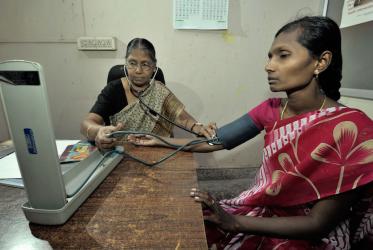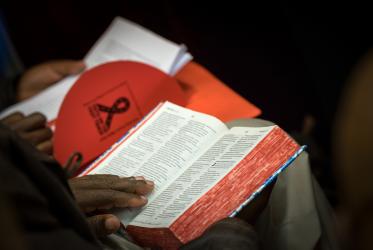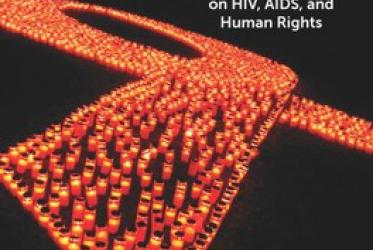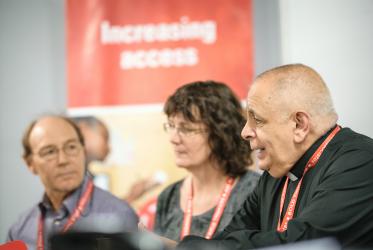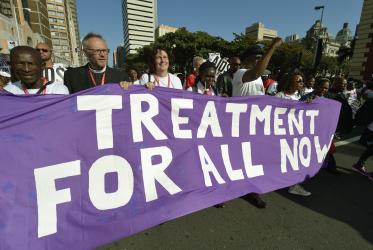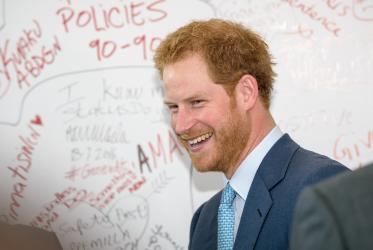Displaying 221 - 240 of 339
02 March 2017
“Health and healing for all people, that is the challenge”
28 February 2017
Dr Halfdan Mahler leaves legacy of public health justice
22 December 2016
Lead by example: get HIV tested
30 November 2016
Bible study gives hope as youth reflect on HIV
02 November 2016
Zambia: “On HIV, we do not compete. We work together.”
20 October 2016
Kenya: Voice of faith communities crucial in overcoming HIV
14 October 2016
WCC book featured in UN discussion on gender, religions and health
16 September 2016
Honest talk blossoms between youth, theologians in Cote d’Ivoire
14 September 2016
AIDS 2016: Coverage of faith response to HIV
22 July 2016
Star power shines light on AIDS epidemic
21 July 2016


